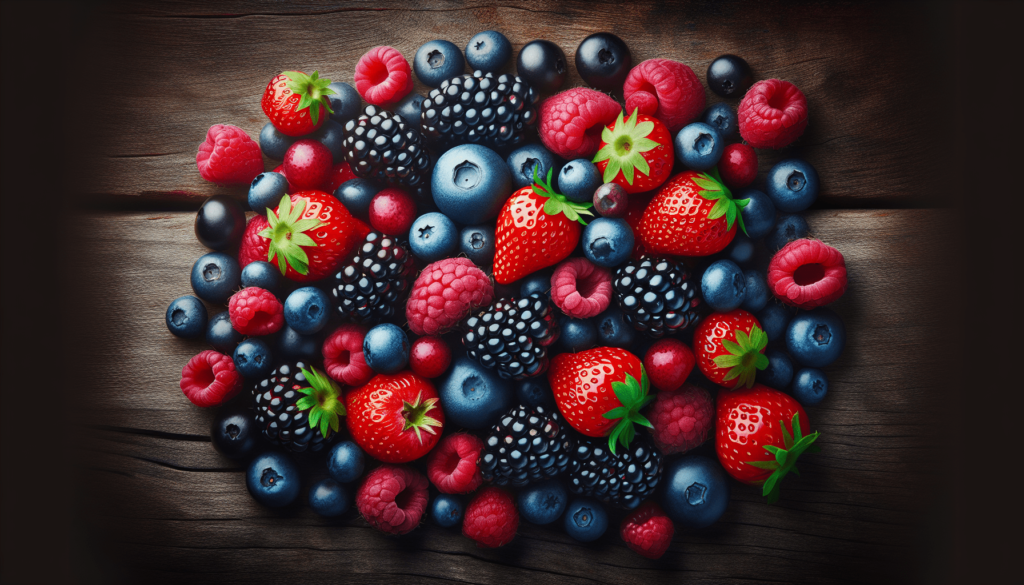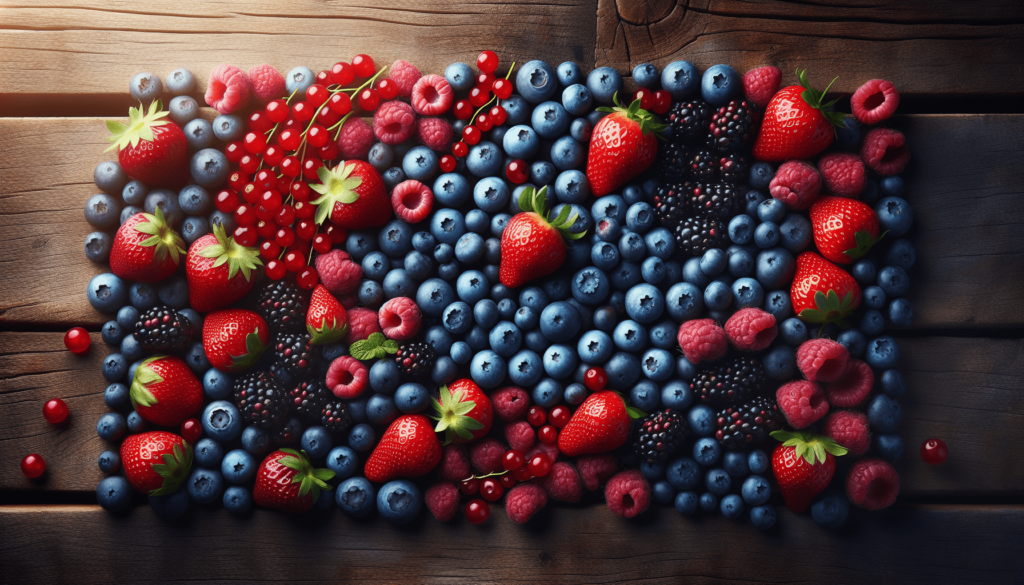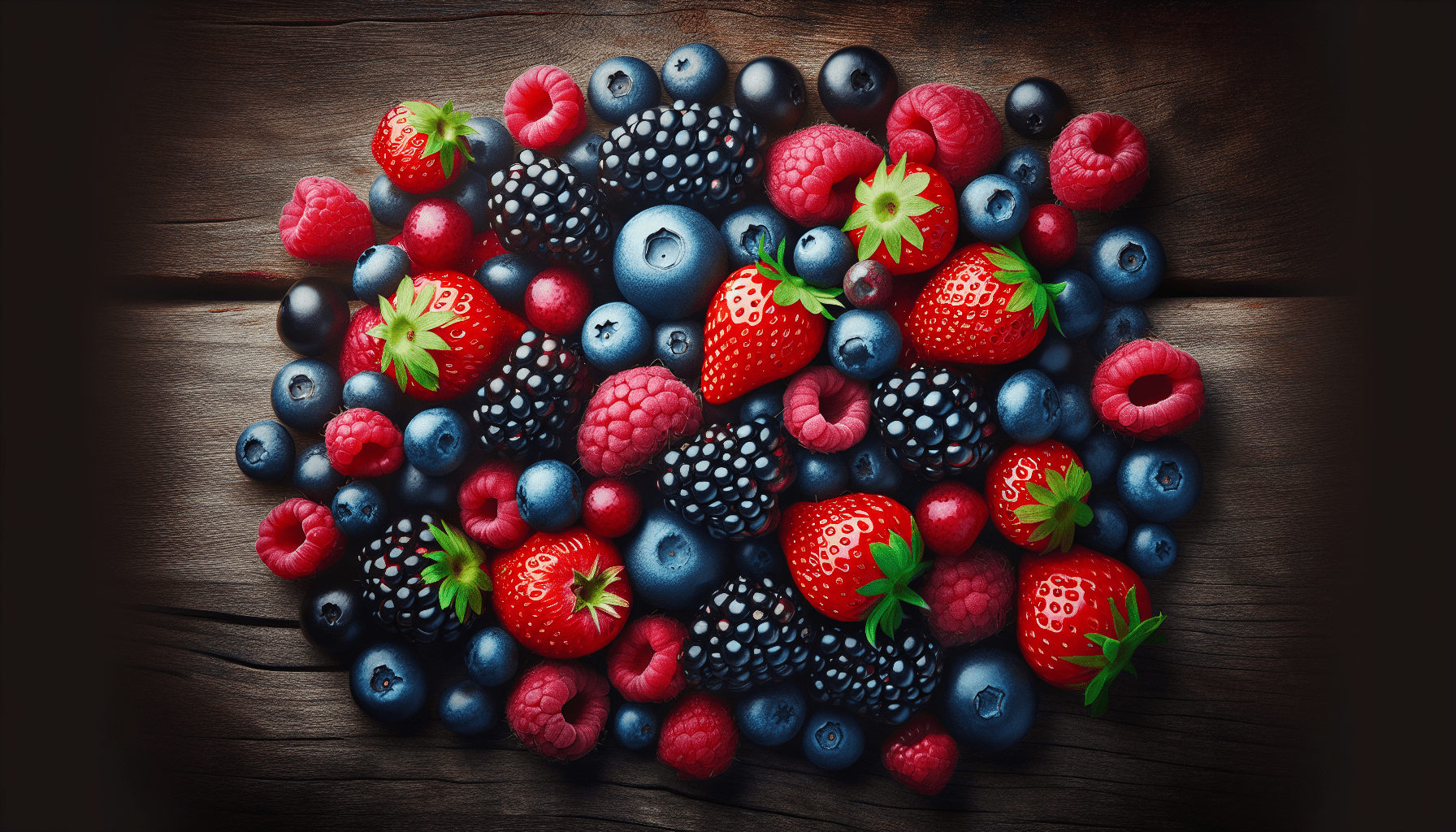Have you ever wondered why those tiny, seemingly invisible molecules, antioxidants, are so hyped up in the world of health and fitness? It’s almost like they have their own fan club. Do they have some sort of publicist who’s doing a bang-up job? And while we’re pondering, wouldn’t it be convenient if they came with a cape and a little superhero mask, much like Publicist Man?
The Role of Antioxidants in Health and Fitness
What Exactly Are Antioxidants? Superheroes in Disguise?
Okay, before you start envisioning antioxidants flying through your bloodstream thwarting evil villainous free radicals, let’s break this down a bit. Antioxidants are molecules that neutralize free radicals – those pesky unstable atoms that can cause damage to cells. Picture free radicals as teenagers at a rock concert, thrashing about and creating havoc, while antioxidants are the responsible adults who keep everything from descending into chaos. No mosh pit injuries on their watch!
The Origins: Meet the Free Radicals and Antioxidants
Free Radicals: The Wild Teenagers of Your Body
Free radicals are like that one friend we all have who means well but just keeps breaking things. They are naturally formed in your body during normal metabolic processes, or they can be introduced from external sources like pollution, radiation, tobacco smoke, and the Sun. Imagine the Sun being that rowdy neighbor who insists on blaring music at 3 AM.
Antioxidants: The Unsung Heroes
Antioxidants, on the other hand, are the zen masters who keep everything calm. They donate an electron to free radicals without becoming destabilized themselves, turning your body from a potential war zone into a peaceful garden. Think Mr. Miyagi from The Karate Kid, going around making everything better with some wax on, wax off action.

The Types of Antioxidants: Like Different Flavors of Ice Cream (But Healthier)
There are various kinds of antioxidants, each with their own unique properties and benefits. Here’s a little rundown to help categorize them, in case you want to start a baseball card collection or something.
| Antioxidant Type | Found In | Role in the Body |
|---|---|---|
| Vitamin C | Citrus fruits, tomatoes, and leafy greens | Protects against immune system deficiencies |
| Vitamin E | Nuts, seeds, and green leafy vegetables | Vital for skin health and vision |
| Beta-Carotene | Carrots, sweet potatoes, and squash | Important for eye health |
| Flavonoids | Berries, tea, and chocolate | Multi-functional, including heart health benefits |
| Selenium | Nuts, seeds, and seafood | Supports thyroid function and immune system |
Just imagine your body as an exclusive club where only the coolest antioxidants are on the guest list. “Vitamin C, right this way, your table is waiting!”
How Antioxidants Work: The Science-y Bit (Without the Headache)
Without turning this into a PhD dissertation, let’s discuss how antioxidants actually do their thing. When free radicals accumulate, they start causing oxidative stress, which can lead to chronic diseases. Antioxidants step in to neutralize these troublesome free radicals, thereby reducing oxidative stress and minimizing potential damage to your cells. Think of antioxidants as the crowd control at a music festival – ushering out the riffraff before things get too wild.

The Health Benefits: Why You Should Care
Better Skin: Say Goodbye to Wrinkles and Hello to Radiance
Ever noticed how you look more like a prune than a peach as you age? Blame the oxidative stress. Antioxidants, particularly Vitamin C and E, help turn back the clock, making your skin smoother and more youthful. It’s like a mini time machine, all without the pesky flux capacitor issues.
Improved Heart Health: Keeping the Ticker Ticking
Your heart is the drummer in the band of life. Without it, there’s no rhythm, and antioxidants are the roadies, keeping the equipment in top-notch condition. Flavonoids, particularly those found in dark chocolate and tea, have been shown to improve heart health. Indulging in a bit of chocolatey goodness? Yes, please. Just tell everyone it’s doctor’s orders.
Enhanced Immunity: Fortify Your Defenses
Nobody enjoys being sick. Antioxidants are like a home security system for your body. Vitamin C, in particular, bolsters your immune system, making you less prone to colds and other infections. Strap on that superhero cape and ward off illness like the germ-fighting champion you are.
Better Vision: Because Seeing Is Believing
Remember the story about carrots helping you see in the dark? Well, there’s a kernel of truth in that. Beta-carotene, found in carrots and other orange veggies, converts to Vitamin A in the body, which is crucial for maintaining good vision. Just imagine the carrots whispering to you, “Make way for Super Sight!”
Incorporating Antioxidants into Your Fitness Routine
Pre-Workout: Fuel Like a Pro
Prepping for a workout isn’t just about lacing up your shoes; it’s also about fueling your body right. Bananas, rich in Vitamins C and E, are a fantastic pre-workout snack. They’re like the backstage pass allowing you VIP access to energy.
Post-Workout: Recovery Time
After sweating buckets at the gym, your body needs to repair itself. Enter antioxidants again, stage left. Consuming a smoothie loaded with berries (hello, flavonoids!) can speed up recovery and reduce muscle soreness. Imagine it as a soothing spa day for your weary muscles.
Common Myths About Antioxidants: Busting the Urban Legends
Myth 1: All Antioxidants Are Created Equal
Not all antioxidants are Bono; some are more like that guy playing a triangle in the back. Different antioxidants serve different purposes. You wouldn’t want to use eye cream as toothpaste, would you?
Myth 2: More Is Always Better
Imagine a world where “more is better” applied to everything. We’d all be drowning in a sea of spaghetti. The same goes for antioxidants. Too much of a good thing can actually backfire, leading to an imbalance. Moderation, darling, moderation.
Myth 3: Supplements Are Just As Good As Natural Sources
Supplements can be helpful, but they’re not a substitute for the real deal. Pop quiz: Would you rather bite into a juicy, sun-ripened orange or chug down a chalky, orange-flavored pill? Thought so.
Practical Tips: How to Boost Your Antioxidant Intake Without Hiring a Nutritionist
Eat the Rainbow: No, Not Skittles
Consuming a variety of colorful fruits and vegetables ensures you’re getting a broad spectrum of antioxidants. Your plate should look like a painter’s palette, not a monochromatic square of broccoli.
Don’t Skip the Roughage: Fiber Is Your Friend
Whole grains, nuts, and seeds are packed with antioxidant goodness. Think of them as little treasure chests of health. Who knew fiber could be so fabulous?
Get Cooking: Channel Your Inner Chef
Cooking methods can affect the antioxidant levels in foods. Steaming and grilling are better choices than deep-frying, unless you’re on a mission to clog every artery – which, spoiler alert, you’re not.
Drinks: Sip Your Way to Better Health
Tea and coffee aren’t just for waking up your brain; they’re also antioxidant powerhouses. Sipping on green tea or a cozy cup of coffee can boost your intake. Just remember, drowned in sugar and cream isn’t the way to do it.
Antioxidants and Aging: Keep That Fountain of Youth Flowing
Adding antioxidants to your daily routine isn’t just about immediate benefits; it’s a long-term investment. They can help slow down the aging process by protecting your cells from damage. It’s like adding years to your life without a time machine.
Reducing Age-Related Diseases
From heart disease to cancer, antioxidants can play a role in reducing the risk of age-related diseases. It’s like a protective layer over your internal organs. Who needs Kevlar when you’ve got kale?
The Future of Antioxidant Research: What’s Cooking in the Lab?
Scientists are continually exploring new ways antioxidants can benefit us, from extending lifespan to improving mental health. Keep your eyes peeled – there’s always something brewing in the antioxidant frontier. Maybe one day, we’ll be able to sprinkle our fries with antioxidant dust and call it health food. One can dream.
Real-Life Stories: When Antioxidants Come to the Rescue
Let’s wrap up with a few anecdotes to bring everything full circle. Carol, a 45-year-old mother of two, discovered the wonders of antioxidants after a health scare prompted her to revamp her diet. She swapped out her nightly bag of chips for a handful of nuts and noticed she had more energy and clearer skin within weeks.
Or consider Jake, a 30-something marathon runner who found that incorporating an antioxidant-rich smoothie into his post-run routine cut down his recovery time, making him less prone to injuries. He might not be winning any races against Usain Bolt, but hey, at least he’s not hobbling to the car after every run.
In summary, antioxidants might not have the flashy appeal of a new diet fad, but their benefits are grounded in solid science. From promoting heart health to providing more youthful skin, these molecules are the unsung heroes of the wellness world. So go ahead, incorporate these little defenders into your routine, and maybe even give them a cape.
Now, off you go to live your healthiest life, armed with the knowledge that antioxidants are more than just a buzzword – they’re your body’s best friends, keeping things running smoothly.
Go ahead and give those free radicals something to worry about!
